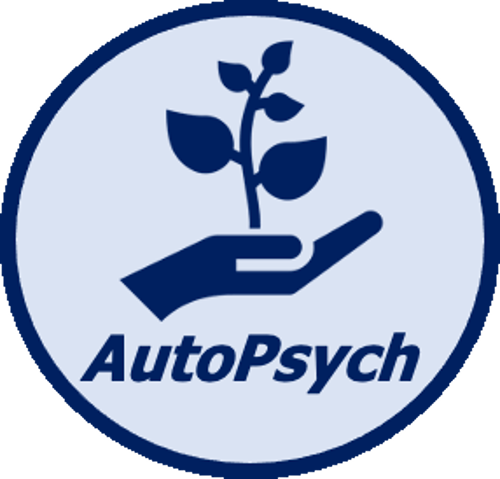What's Included With AutoPsych?
Game-changing ADHD management. Welcome to AutoPsych, where our innovative care solution puts you in control of your journey to better health, without the hassle. We know how tough it can be to juggle life with ADHD, our seamless system that delivers expert care and support while you keep moving forward.
Here's how it works.
1. Enroll Online.
Submit your information online, and we’ll quickly review it to create a personalized diagnosis and treatment plan tailored to your needs.
2. Meet with your provider.
Connect with your provider via a secure online meeting to review your treatment plan. We’ll answer all your questions to ensure you feel confident moving forward.
3. You're in control.
Once your treatment plan is ready, you’re all set. Prescriptions and care plans are activated when you’re ready, and we’re here to support you 24/7 as you progress.
Automatic Med-Checks.
To ensure continuous progress, we’ll automatically check in with you every 4 weeks. These med-checks are simple, online, and can be completed on your schedule—anytime, from any device.
Effortless Care.
Your treatment team reviews your plan daily so you don’t have to. We ensure prescriptions are filled on time each month, help you stay on track with your goals, and support your ongoing improvement.
Unlimited LIVE visits.
Need to speak with your provider? You can schedule a live visit at your convenience, any day of the week. We’re always here when you need us. ($99 optional add-in)
No Surprise Billing
$499 to start, then $99 per month, cancel anytime.
At AutoPsych, there are no surprise bills. Fees are collected directly for the services you receive, ensuring that your payments go directly to the providers offering your care.
*Prescriptions provided only with strict adherence to local, state, and federal regulatory agencies.
In states that prohibit prescribing via Telemedicine, patients will be referred to local providers to initiate treatment recommendations under their professional guidance. Learn More.
Common Care Plans for ADHD and Anxiety
You're the boss, and you're always in control.
ADHD Care With Stimulants
Stimulant medications are the primary recommended choice for adults with ADHD. These medications are commonly complemented by proven behavioral modification strategies and environmental adjustments.
Under the guidance of your healthcare provider, you can safely initiate a stimulant regimen that begins working for you promptly. We'll support you in monitoring various aspects, including weight, blood pressure, sleep habits, mood, and more. Discover more about ADHD and your treatment options.
ADHD Care Without Stimulants
Non-stimulant medications offer an excellent alternative if you prefer to steer clear of controlled medications or if this form of treatment is not accessible in your area. When coupled with proven behavioral modification techniques and environmental adjustments, your provider can assist you in optimizing productivity swiftly.
Discover the array of safe and proven non-stimulant medications that effectively treat ADHD symptoms.
Medical Tools
Common Prescription Medications for ADHD
Improving focus and attention can feel daunting. This is why we provide a comprehensive review before starting any medications. Luckily, there are several safe and effective, FDA approved medications that are commonly prescribed to improve focus and attention. These include: Ritalin, Concerta, Daytrana, Metadate, Quillivant XR (liquid), Aptensio XR, Cotempla XR-ODT, Adderall, Adderall XR (extended-release), Mydayis (extended-release), Dexedrine, Vyvanse, Evekeo, Desoxyn, Atomoxetine, Guanfacine, Clonidine, Bupropion, Modafinil (Provigil), and Guanfacine ER.
